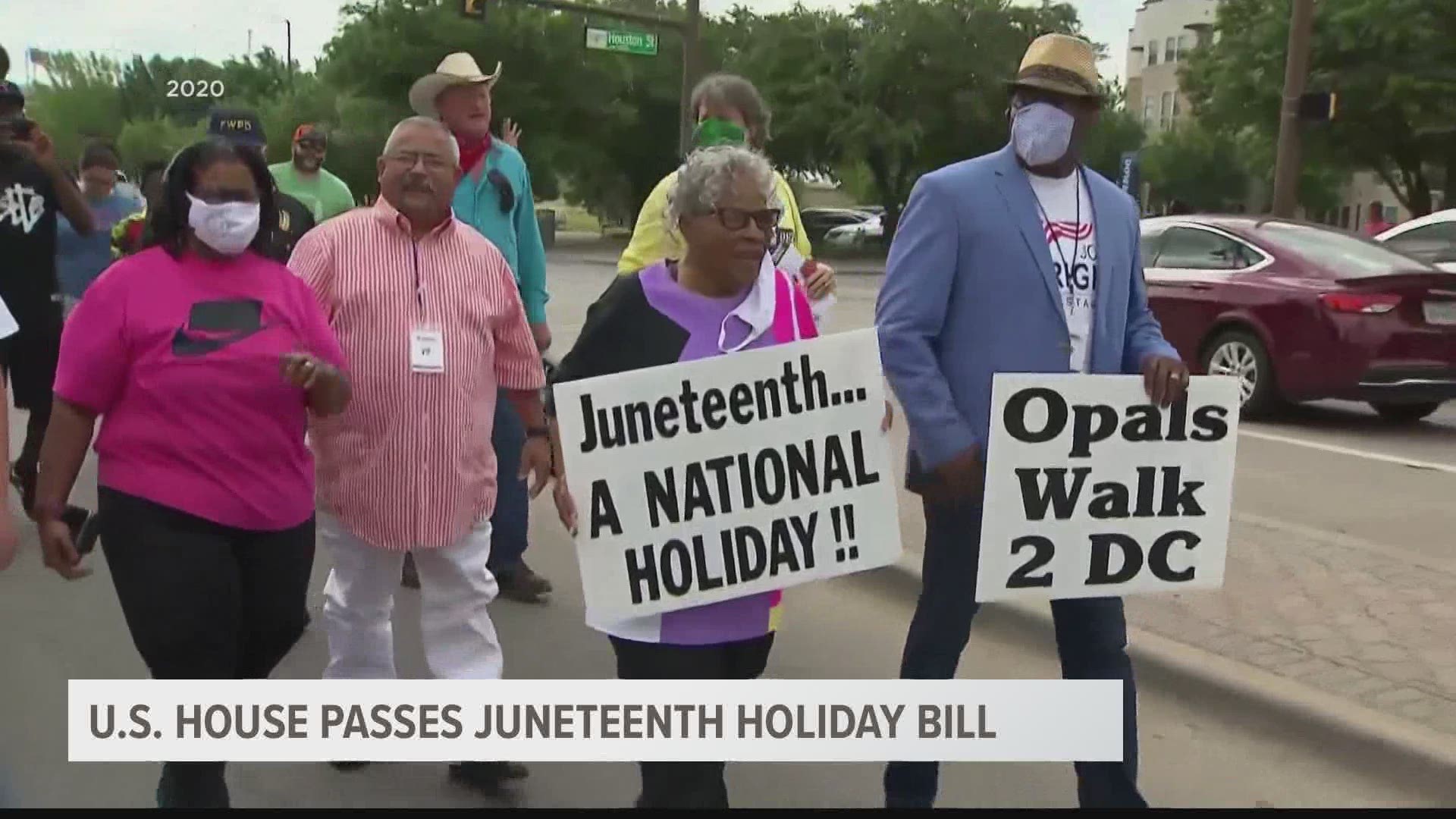COLUMBIA, S.C. — South Carolina U.S. Rep. Ralph Norman was one of just a handful members of Congress to vote against making Juneteenth a federal holiday.
The House voted 415-14 on Wednesday to make Juneteenth, or June 19th, the 12th federal holiday. President Joe Biden is scheduled to sign the bill into law Thursday afternoon.
The measure passed the Senate a day earlier by unanimous consent. It is the first new federal holiday since Martin Luther King Jr. Day was created in 1983.
Juneteenth commemorates June 19, 1865, when Union soldiers brought the news of freedom to enslaved Black people in Galveston, Texas — two months after the Confederacy had surrendered. That was also about 2 1/2 years after the Emancipation Proclamation freed slaves in the Southern states.
Norman was the only member of South Carolina's nine member Congressional delegation, which includes seven representatives and two senators, to formally oppose the holiday.
Norman said in a statement on social media his objection was not on the substance of the holiday itself, but the fact that the measure was called "The Juneteenth National Independence Day Act."
"If you want to call Juneteenth, for example, Freedom Day or Emancipation Day then fine – that’s certainly worth considering. But calling it Independence Day is WHOLLY INAPPROPIATE," he wrote.
He said he also thinks the holiday will be a financial burden for the country.
"When [Former President Barack Obama] issued an executive order in 2014 giving federal employees an extra day off, that cost the government roughly $660 MILLION dollars, according to the Congressional Budget Office," he wrote. "So given inflation and the obnoxious growth of the federal government, this means a Juneteenth holiday should easily cost the federal government over a billion dollars Every. Single. Year. in federal payroll & holiday premiums with no offsets!"
News19 has not been able to verify the financial impact projection figure Norman quotes.
Norman represents South Carolina's Fifth Congressional District, which stretches from suburban Charlotte in York County into Chester and Union County and then down into the Midlands, including all or parts of Newberry, Lee, Sumter, Kershaw, and Fairfield Counties. Before taking the office in a special election in 2017, he was a member of the South Carolina General Assembly.

